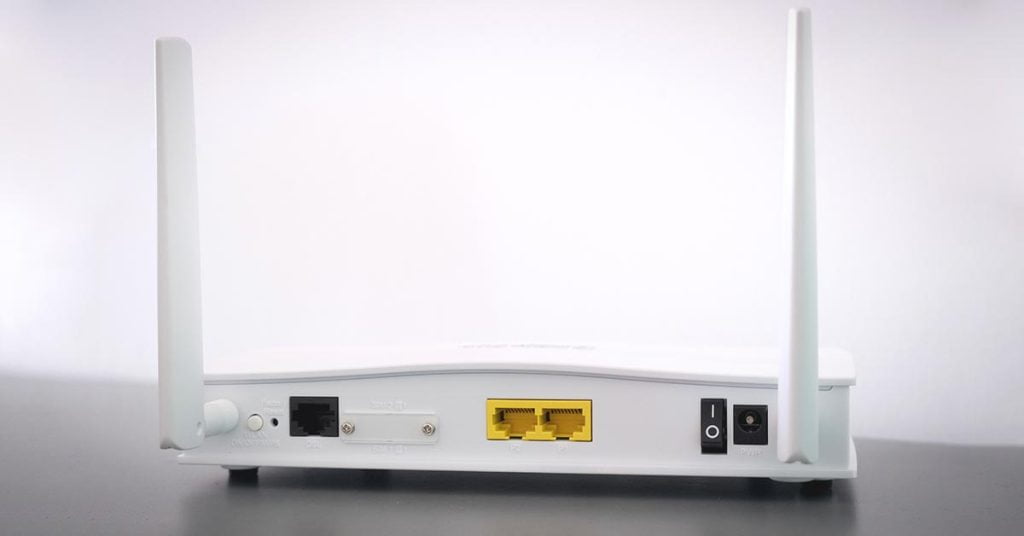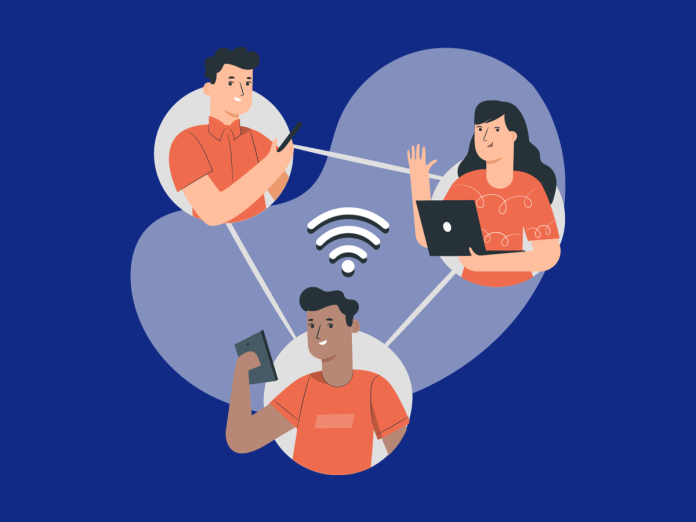The internet, with over 5.38 billion users worldwide, has become an indispensable part of our lives, enabling businesses, entrepreneurs, and individuals to connect, explore, and thrive in the digital realm. But have you ever wondered how you access this vast cyber-universe? That’s where ISPs come into play. In this article, we’ll explore the world of ISPs and why they are crucial for your online journey.
Table of Contents
What Is an ISP?
An ISP, short for Internet Service Provider, is like the gateway to the vast world of the Internet. Think of them as the bridge that connects your devices to the global network of websites, data, and online services. ISPs are the unsung heroes behind your daily dose of digital activities. It’s the company that provides you with internet access, allowing you to surf the web, send emails, stream videos, and more. ISPs use various technologies to deliver internet connectivity to your home or business.
Why Do I Need an ISP? Connecting to the Internet
To access the internet, you need a connection, much like plugging your device into an electrical outlet to get power. ISPs provide this crucial link, ensuring your devices can access the World Wide Web.
Think of it this way: without an ISP, you’re like a car with no fuel, a phone with no signal, or a website with no visitors. Your ISP fuels your digital journey, making it possible for you to browse, stream, communicate, and conduct business online.
Different Types of ISP Connections

ISPs come in various shapes and sizes, each catering to different needs. Let’s explore some common types:
- Dial-up: Dial-up is an older, slower technology that uses your phone line to connect to the internet. It’s rarely used today due to its sluggish speeds.
- Cable Internet Providers: Cable ISPs leverage TV cable infrastructure to bring online services to your home. They typically provide high-speed connections.
- DSL (Digital Subscriber Line) and Broadband Providers: DSL ISPs use telephone lines to deliver internet connectivity. They offer a reliable and affordable option for many users. Broadband is a high-speed internet connection that allows you to access the web and stream content without delays.
- Fiber Optic Cable: Fibre optic ISPs use ultra-fast fibre optic cables to transmit data at blazing speeds. They are ideal for businesses and heavy internet users.
- Wireless ISPs (WISPs): WISPs use wireless technologies like Wi-Fi to offer online services. They are popular in urban areas and can provide flexibility in connecting multiple devices.
- Satellite Internet Providers: For those in remote areas, satellite ISPs deliver internet via satellite signals. While they provide coverage in areas where other options may not be available, they can sometimes have latency issues.
Typical Services Offered by ISPs
Now that we’ve covered the basics let’s explore some of the other typical services offered by ISPs that can enhance your online experience. In addition to offering internet access, ISPs may also offer additional types of services such as email accounts, and hosting.
- Web Hosting: As an authoritative web hosting and domain registration company, MCloud9 offers reliable hosting services. They provide you with the virtual real estate needed to build and manage your website.
- Email Services: ISPs often include email services, allowing you to create professional email addresses associated with your domain.
- Router and Modem Provision: Many ISPs provide you with the necessary equipment to set up your home network, including routers and modems.
Selecting an ISP: How To Choose a Good ISP
Now that you understand the role of an ISP and the services they offer, the next crucial step is selecting an ISP that suits your needs. Here’s how you can choose a good ISP:
- Speed: Look at the types of connection offered(broadband, dial-up, etc.) and consider your internet speed requirements. If you’re a heavy internet user or run an online business, you’ll need a high-speed connection.
- Reliability: Look for ISPs with a reputation for reliability and minimal downtime. MCloud9, for instance, is known for its 99.9% uptime guarantees.
- Customer Support: Excellent customer support is vital, especially when technical issues arise. Read reviews and ask for recommendations to gauge the level of support provided.
- Pricing and Plans: Compare pricing and plans to find one that aligns with your budget and requirements.
How Do I Find My ISP?
Finding your ISP is as easy as making a cup of coffee. In most cases, you can simply check your internet bill or the documentation that came with your router or modem. Alternatively, you can visit a website like whatismyip.com to discover your ISP.
Internet Without an ISP: Is It Possible?
While ISPs are the standard way to access the internet, you might wonder if it’s possible to go online without one. The short answer is: not really. ISPs are the gatekeepers to the internet, providing the infrastructure and connections needed to access the web.
FAQ for ISP (Internet Service Providers)
What is an ISP?
An ISP, or Internet Service Provider, is a company that provides access to the internet. It is a company that offers its customers a way to use the internet through a broadband connection or a dial-up service.
What are different types of ISP tiers: Tier 1, Tier 2, and Tier 3 ISPs?
There are three main tiers of ISPs: Tier 1, Tier 2, and Tier 3. Tier 1 ISPs are the largest and provide internet access directly to customers. They are considered the backbone of the internet as they have their own networks and infrastructure. They have direct connections with other Tier 1 ISPs, making them capable of handling large amounts of internet traffic. Tier 2 ISPs usually purchase internet access from Tier 1 ISPs and then offer it to their customers. Tier 3 ISPs are smaller local or regional ISPs that purchase internet access from Tier 2 ISPs or other Tier 3 ISPs.
Can I switch from one ISP to another?
Yes, you can switch from one ISP to another if you are not satisfied with your current service provider. However, the availability of different ISPs may vary depending on your location. It’s advisable to check with different ISPs in your area to compare their services and prices before making a decision.
How do ISPs manage internet traffic?
ISPs use various techniques to manage traffic and ensure a smooth experience for their customers. This includes prioritising certain types of traffic, implementing traffic shaping or bandwidth throttling during peak usage times, and adopting Quality of Service (QoS) policies to optimise network performance.
In Conclusion
Understanding what an ISP is and appreciating their importance is essential in today’s world. These unsung heroes of the internet ensure you have the connectivity you need to thrive online. They offer not just internet access but a suite of services to enhance your digital experience. So, next time you click a link, send an email, or host a website, remember the ISP behind the scenes, making it all possible.
If you’re in search of a reliable web hosting and domain registration company, look no further than MCloud9 – your trusted partner in the online world.


